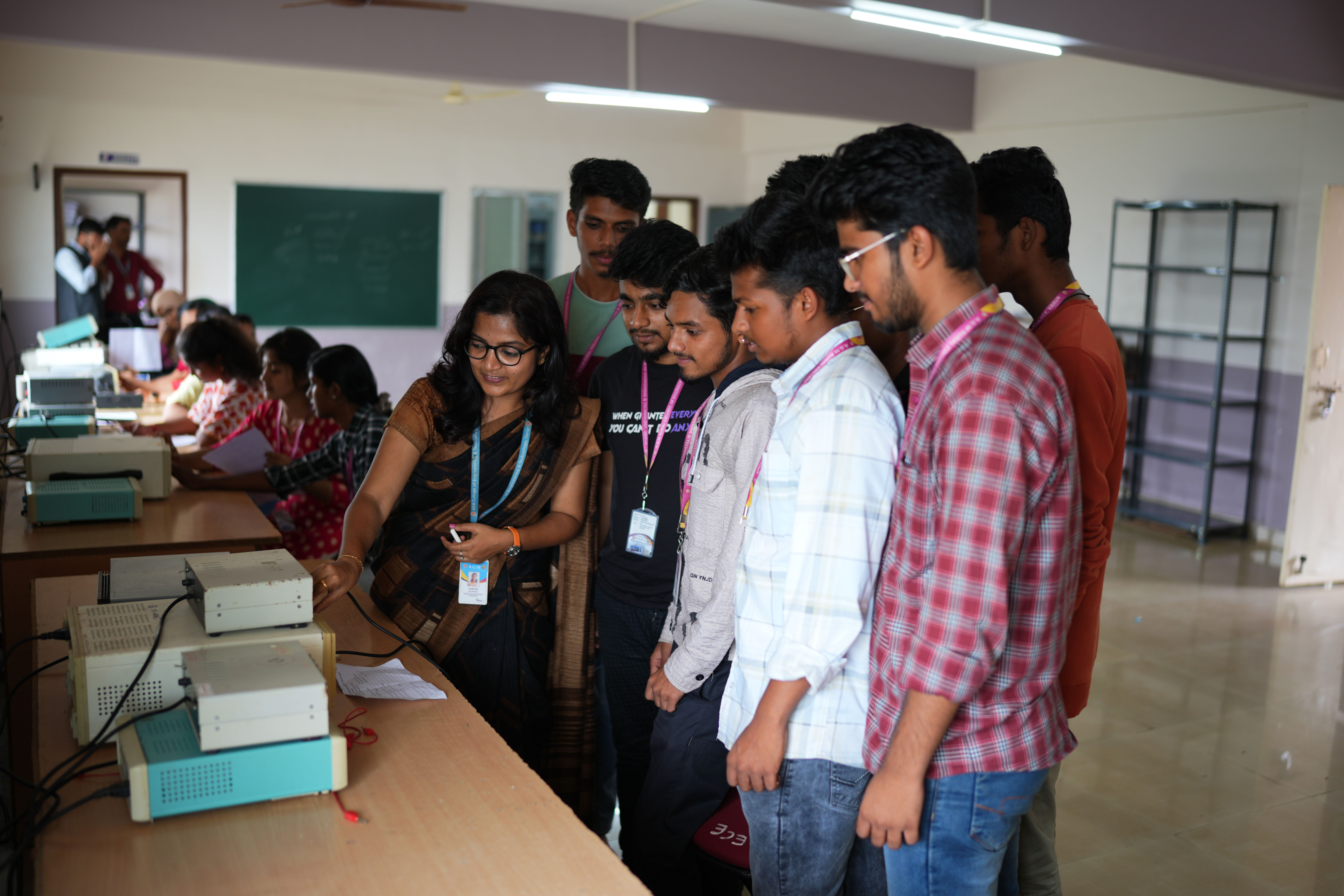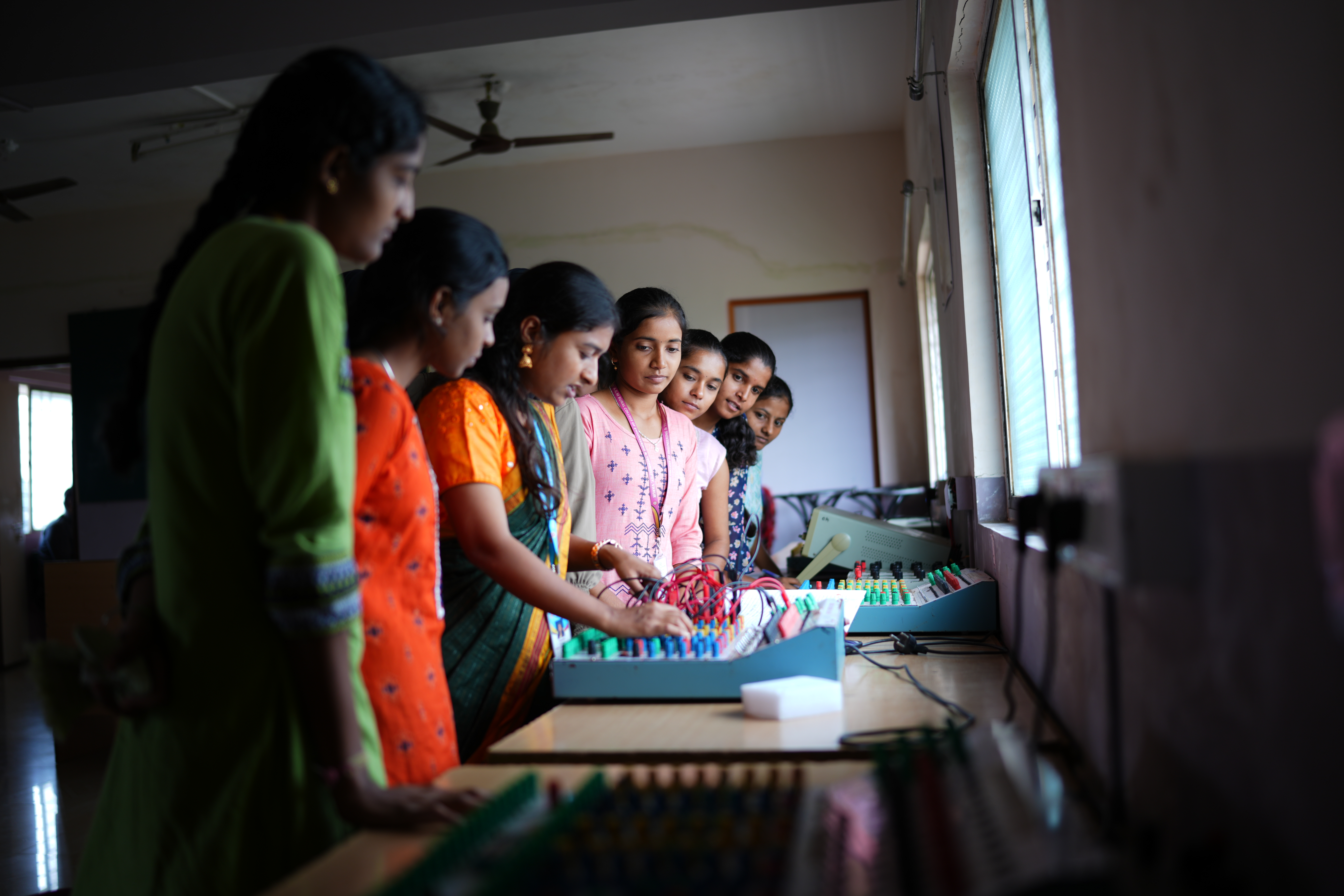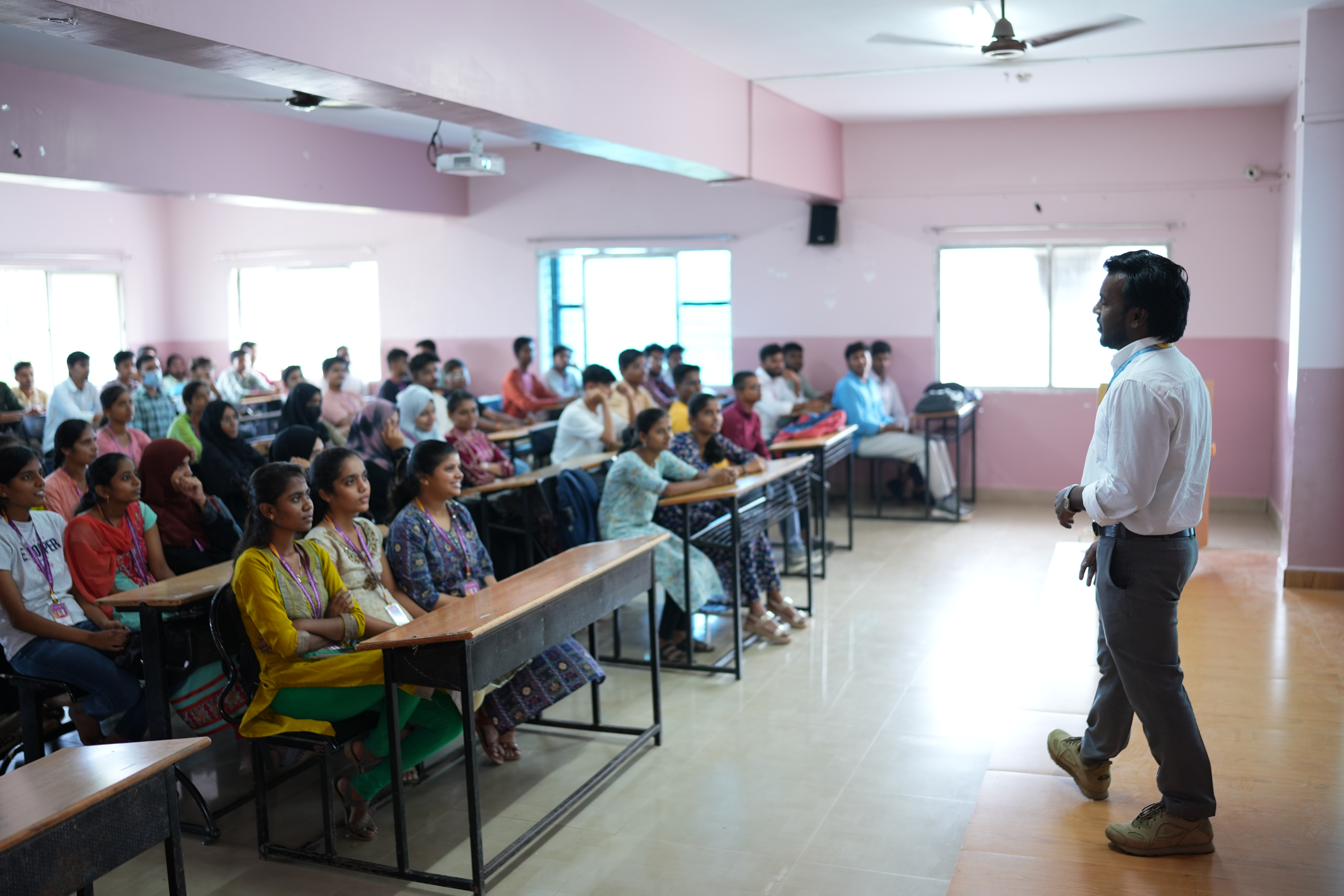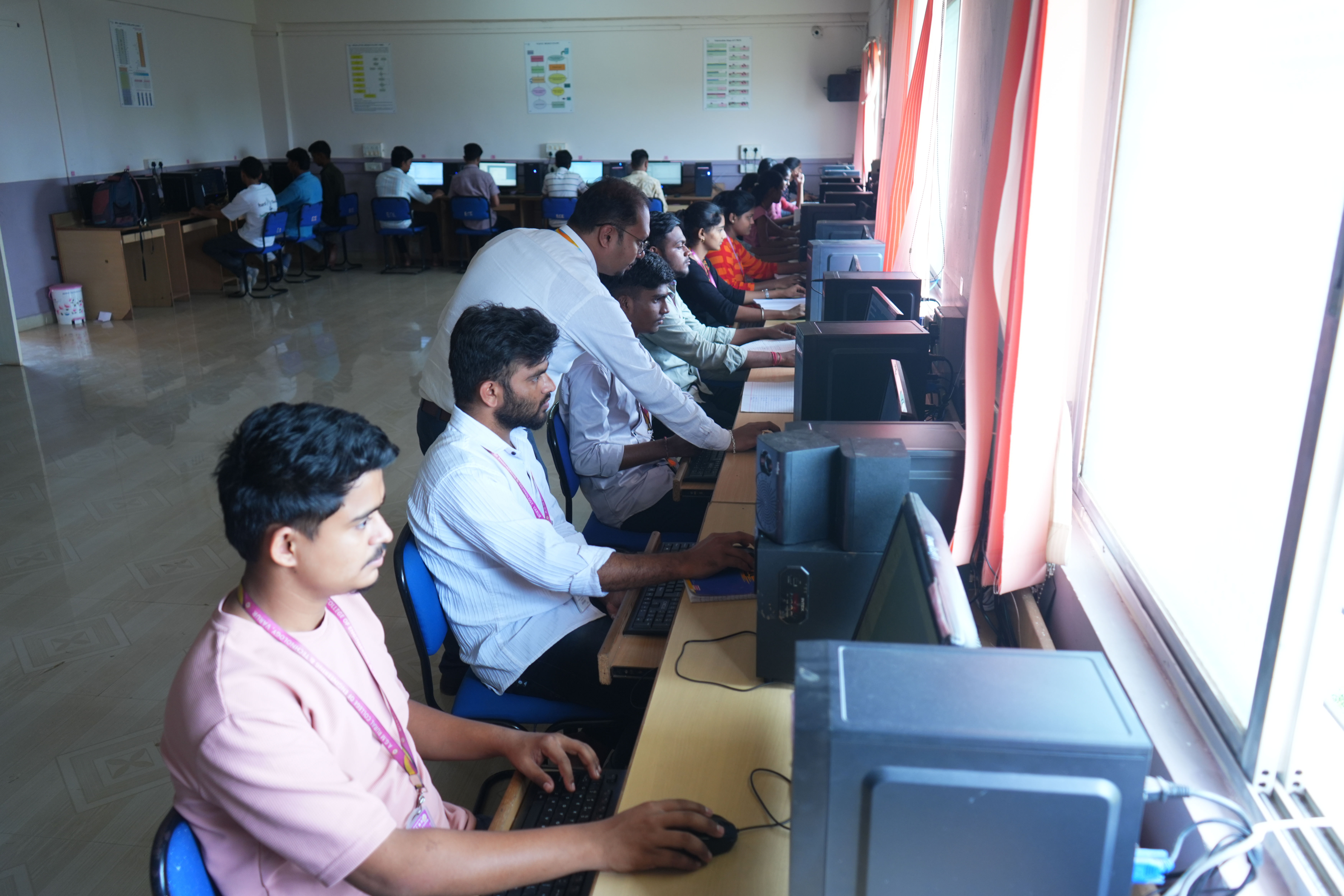- Home
-
About us
Want to change the world? At AGM we’re doing just that. When you join the AGM community, you’re part of an institution that shifts the global conversation every single day.
Read more - Academics
- Admissions
- Placement
- Facilities
- Life@AGM
- Contact us
- Navagrah Varur Hubli Karnatka Dharwad.
- Phone:+9194810 87999
- CET Code: E-199
- COMEDK Code: E-208
- Approved By AICTE
- Affiliated to VTU
Electronics & Communication Engineering
About Department
Department of Electronics & Communication Engineering AGMRCET. has established in the year 2010 with an intake of 60. Department of Electronics and Communication Engineering strives for increasing the knowledge, enhancing the critical thinking, ability to change information into knowledge and power of analyzing the things technically of each and every student in the ever changing society.
We also intend to impart knowledge through a closed knit family of highly competent faculty. Our Laboratories have been very well established not only to cover complete syllabus but to motivate students to learn beyond the syllabus which definitely develops complete knowledge of the subject (both the practical and theoretical) and develop skill sets of students to become promising engineers in future.
Our Vision
"To achieve immeasurable growth towards technical education in the field of Electronics and communication engineering."
Our Mission
*"To inculcate the contemporary technical education in the field of electronics and communication engineering.
*To practice innovative teaching and learning in the field of engineering and communication engineering."
HOD Message
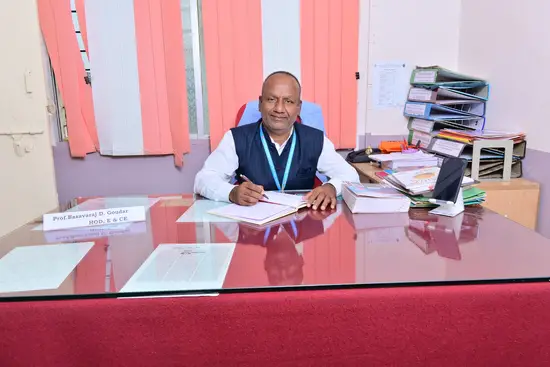
Mr. Basavarj G
Head
Department of Electronics and Communication Engineering
The Electronics and Communication (E&C) Engineering Department was established in the year 2010. The department has highly qualified faculty members with Ph.Ds. in diverse fields. The faculty focus on molding quality engineers who are capable of making great contributions for a better tomorrow. The department has state-of-the-art laboratories for enabling students to pursue their desire for attaining excellence in research and academics. The facilities encourage students to have hands-on training in modern engineering tools.
The department regularly organizes seminars, guest lectures, short-term training programs and workshops for the professional development of students and faculty within and beyond the institute. Furthermore, the department strives to develop collaborative research and development linkages with leading organizations in India and abroad.
Program Outcomes(POs):
PO1: Engineering knowledge: Apply the knowledge of mathematics, science, engineering fundamentals, and an engineering specialization to the solution of complex engineering problems.
PO2: Problem analysis: Identify, formulate, review research literature, and analyze complex engineering problems reaching substantiated conclusions using first principles of mathematics, natural sciences, and engineering sciences
PO3: Design/development of solutions: Design solutions for complex engineering problems and design system components or processes that meet the specified needs with appropriate consideration for the public health and safety, and the cultural, societal, and environmental considerations.
PO4: Conduct investigations of complex problems: Use research-based knowledge and research methods including design of experiments, analysis and interpretation of data, and synthesis of the information to provide valid conclusions.
PO5: Modern tool usage: Create, select, and apply appropriate techniques, resources, and modern engineering and IT tools including prediction and modeling to complex engineering activities with an understanding of the limitations
PO6: The engineer and society: Apply reasoning informed by the contextual knowledge to assess societal, health, safety, legal and cultural issues and the consequent responsibilities relevant to the professional engineering practice
PO7: Environment and sustainability: Understand the impact of the professional engineering solutions in societal and environmental contexts, and demonstrate the knowledge of, and need for sustainable development.
PO8: Ethics: Apply ethical principles and commit to professional ethics and responsibilities and norms of the engineering practice.
PO9: Individual and team work: Function effectively as an individual, and as a member or leader in diverse teams, and in multidisciplinary settings.
PO10: Communication: Communicate effectively on complex engineering activities with the engineering community and with society at large, such as, being able to comprehend and write effective reports and design documentation, make effective presentations, and give and receive clear instructions.
PO11: Project management and finance: Demonstrate knowledge and understanding of the engineering and management principles and apply these to one’s own work, as a member and leader in a team, to manage projects and in multidisciplinary environments
PO12: Life-long learning: Recognize the need for, and have the preparation and ability to engage in independent and life-long learning in the broadest context of technological change.
PSO1: Recognize the complex problems and Develop solutions in diverse fields of Communication System.
PSO2: Acquire specific knowledge to promote research and career excellence in the areas of VLSI and Embedded System.
-
2022 Scheme Co Statments
-
2021 Scheme Co Statments
-
2018 Scheme Co Statments
| Name | Qualification | Designation | Experience |
|---|---|---|---|
| Mr. Basavaraj D. Goudar | B.E M.Tech | HOD & Associate Professor | 24 |
| Mr. Sandeep Kyatanavar | B.E M.Tech | Associate Professor & Director | 14 |
| Mrs. Vineeta Gejji | B.E M.Tech Ph.D | Associate Professor | 36 |
| Dr. Hanumantappa H C | B.E M.Tech PH.D | Associate Professor | 23 |
| Dr. Kunjan Shinde | B.E M.Tech PH.D | Associate Professor | 10 |
| Mrs. Ashwini Puttannavar | B.E M.Tech | Assistant Professor & TPO | 12 |
| Mr. Kalmesh M. W. | B.E M.Tech | Assistant Professor | 10 |
| Mrs. Vinaya S. I. | B.E M.Tech | Assistant Professor | 16 |
| Mr. Vinayak Jadhav | B.E M.Tech | Assistant Professor | 11 |
| Mrs. Shweta M Shidaganal | B.E M.Tech | Assistant Professor | 10 |
| Mr. Asif Iqbal Mulla | B.E M.Tech | Assistant Professor | 10 |
| Mrs. Shweta M Shidaganal | B.E M.Tech | Assistant Professor | 10 |
| Ms. Renuka Patil | B.E M.Tech | Assistant Professor | 06 |
| Ms. Vijayalakshmi | B.E M.Tech | Assistant Professor | 02 |
| Mr. K S Shubham | B.E M.Tech | Assistant Professor | 0.2 |
| Supporting Staff | |||
| Mr. Sudhasagar | Diploma | Foremen | 16 |
| Mr. Shankrappa Badiger | Diploma | Instructor | 14 |
| Mrs. Chaitra Kulkarni | Diploma | Instructor | 09 |
| Mrs. Savita | Diploma | Instructor | 04 |
| Mr. Praveen Madnur | Diploma | Instructor | 04 |
| Mr. Prjawal Ramesh Hooli | ITI | Asst Instructor | 03 |
| Mr. Ramesh Honnikeri | PUC | Helper | 6 |
-
Placced Student Details
What we have
Scheme and Syllabus
Enquiry Form

Courses Offered
Quick Links
HELP & SUPPORT
Get In Touch
Address: NavagrahaTeerth,NH4-Raod Varur,Hubballi,Karnataka-581207
Phone: +(91)94810 87999
Email: principal@agmrcet.ac.in












